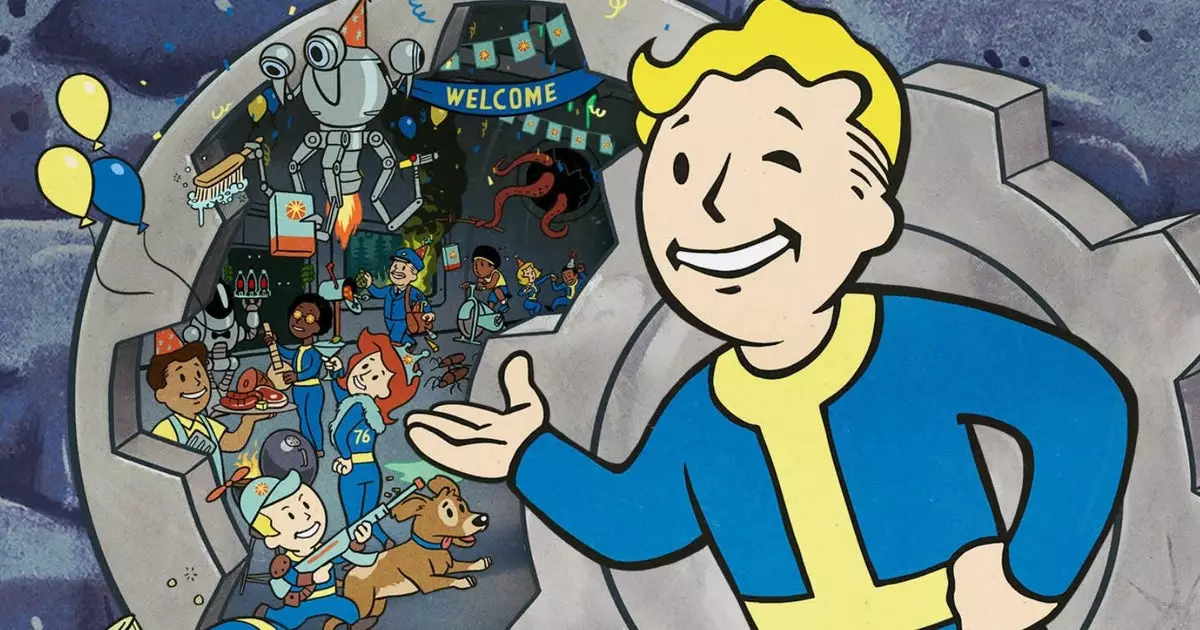In a remarkable show of unity, approximately 300 workers from ZeniMax Media, the powerhouse behind acclaimed titles such as Elder Scrolls, Doom, and Fallout, have expressed their willingness to strike if their demands for improved wages and working conditions go unheeded by Microsoft, the parent company of ZeniMax. This surge of collective action marks a pivotal moment within the video game industry, where workers are increasingly vocal about their rights and expectations. The foundation of this movement stems from the establishment of ZeniMax Workers United in December 2023, under the umbrella of the Communication Workers of America (CWA).
The journey toward unionization was driven by essential issues that had remained unresolved for too long, including remote work opportunities and the alarming trend of outsourcing quality assurance work. As the gaming industry faces rapid transformation, the need for workers to advocate for their interests has never been more pressing.
Stalled Negotiations and Employee Voices
For nearly two years, unionized employees have been negotiating with Microsoft over significant workplace concerns. Despite the tech giant’s earlier acknowledgment of the union, analysts like Brendy note that this gesture may not necessarily indicate genuine support from the leadership for union initiatives. The recent one-day strike by the ZeniMax workers highlighted their frustrations regarding return-to-office policies and the ongoing shift toward outsourcing labor without proper consultation.
According to their recent statements, a striking 94% of union members voted in favor of a strike to assert their bargaining power. Workers are not merely voicing frustrations; they are articulating a demand for recognition that goes beyond surface-level acknowledgment. The statements from senior QA tester Zachary Armstrong eloquently encapsulate the urgency of their plight. He cites “underpayment and costly RTO initiatives” as major contributors to economic instability in their lives, an echoing sentiment that resonates with countless individuals across the workforce.
Beneath the Surface: The Emotional Toll
It’s alarming to realize that employees feel obligated to sacrifice personal aspirations, such as starting a family, due to financial uncertainties. Associate QA tester Aubrey Litchfield’s remarks underscore a tragic truth: despite being part of a multi-trillion dollar corporation, workers find themselves continuously battling for basic sustenance and dignity in the workplace. The fact that in-house contractors earn minimal wages without benefits speaks volumes about the systemic issues plaguing the industry.
By focusing on the minimum viable wage instead of a livable wage, these corporations fail to recognize the potential value that each worker brings to the creative process. A thriving gaming industry should align the expectations of its workforce with the realities of an increasingly expensive daily life. The disconnect between the financial power of companies like Microsoft and the hardships endured by their employees reveals an urgent call for change.
The Broader Context of Unionization
The union actions observed at ZeniMax are not isolated incidents. They reflect a broader trend in the gaming industry, characterized by a collective awakening among video game workers who are demanding more from their employers. The establishment of unions at Bethesda Game Studios and ZeniMax Online Studios serves as a testament to a growing movement aimed at ensuring fair working conditions and job security.
Workers are increasingly voicing concerns about job stability, especially in the wake of rapid technological advancement and the looming threat of generative AI automating roles. As Microsoft invests billions into AI development, the fear of job displacement looms large over the gaming community, further intensifying the urgency for employees to unite and advocate for their interests.
The Ethical Responsibility of Corporations
As we stand witness to these bold actions from ZeniMax Workers United, it raises crucial ethical questions about corporate responsibility in the modern age. Shouldn’t large corporations like Microsoft extend an understanding of human dignity by treating their employees not just as laborers, but as integral contributors to the creative endeavors that make their games beloved? Paying a fair wage isn’t just a moral obligation; it’s an investment in the talent that drives innovation.
The current landscape makes it abundantly clear that employees are ready to stand up against corporate indifference, and their willingness to strike illustrates a resolve that should not be underestimated. It’s time for the gaming industry to realize that the value of its workforce goes far beyond profit margins; it lies in the creativity, passion, and dedication that workers pour into every project, enriching the world of gaming.

